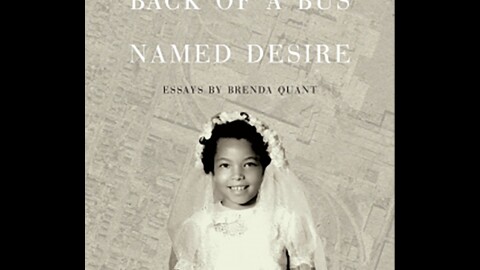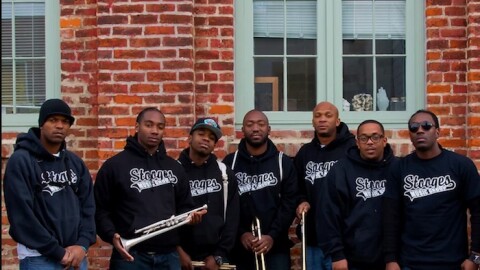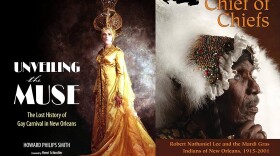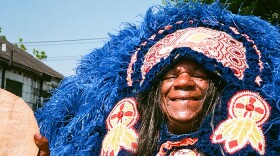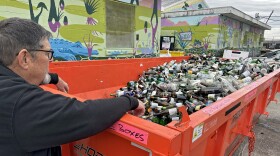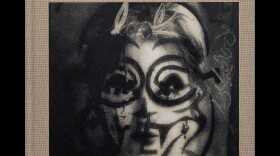-
-
This is American Routes live in the studio with a few friends. The Stooges Brass Band from New Orleans started as teenagers in 1996 after bandleader Walter "Whoadie" Ramsey heard a performance by Rebirth Brass Band. Walter combined members of two rival high school bands, and they later added hip-hop, funk, and R&B into the setup. The Stooges grew up to play local clubs and jazz second line parades. They went global with videos with hip-hop producer Mannie Fresh. Back home they won local Red Bull Street Kings competitions twice since 2010. Kicking it off: The Stooges on American Routes.
-
Traditional plastic beads can be toxic and bad for the environment. In response, some are moving away from plastic beads, using locally recycled glass instead.
-
Our guest is modern saxophonist Charles Lloyd, who also built a sound in Los Angeles, riding a wave of free jazz and beyond. He played alongside everyone from Ornette Coleman to the Jefferson Airplane. His fluid music carried him out of the city to the California Coast, where he hung with the Beach Boys and found internal peace. But before all that, Charles Lloyd discovered his love for the saxophone through the blues in his hometown of Memphis.
-
With Carnival in full swing, the New Orleans culinary school gave its students a crash course — and a rite of passage — in baking their first king cake.
-
The Historic New Orleans Collection spotlights real estate developer Darryl Berger.
-
On this week’s episode, we talk with Gulf South author and journalist, Delaney Nolan, about her first novel, “Happy Bad.”
-
Joe Ely, a native of West Texas, absorbed the honky-tonk, western swing and rock ‘n’ roll of his youth. He ran away from home at age sixteen to see the world and play music. He later returned to Lubbock and formed the Flatlanders with friends Jimmie Dale Gilmore and Butch Hancock, eventually landing in and leading Austin’s cosmic cowboy scene. Before he passed in December 2025, Joe Ely divided his time between the road and the Lone Star State.
-
-
Jazz icon Louis Armstrong spent much of his childhood with the Karnofsky family, Lithuanian Jews who even bought him his first cornet. Now, an effort to rebuild their 100-year-old tailor shop is underway.
-
Nolan discusses the journey of writing her debut novel, how her journalism informs her fiction and more with the Gulf States Newsroom’s Drew Hawkins.
-


